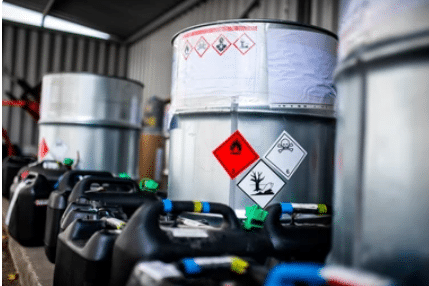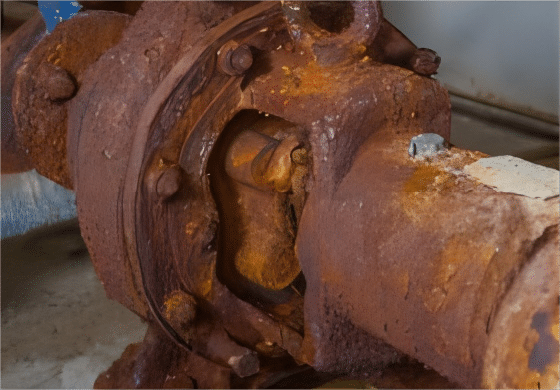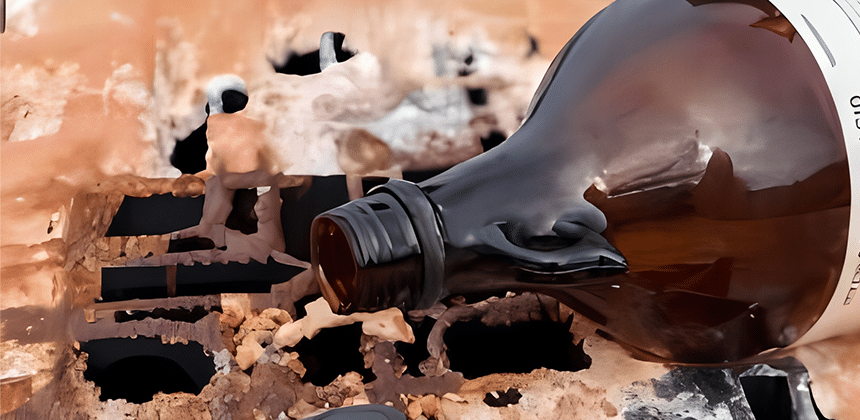Diaphragm Pumps for Corrosive Liquids
Diaphragm pumps play an important role in handling corrosive liquids. Due to the special nature of corrosive liquids, traditional pumps may not be suitable for their requirements, while double diaphragm pumps have corrosion resistance characteristics and can safely and efficiently transfer these liquids. Diaphragm pumps have different applications in different industries, including chemical, pharmaceutical, electronics, environmental protection and other fields.
Understand corrosive liquids
What is a corrosive liquid?
Corrosive liquids are liquids that are highly chemically reactive and capable of attacking, destroying or damaging materials they come in contact with. These liquids often contain acids, bases or other corrosive substances that can cause chemical reactions and lead to corrosion of materials.

What serious damage it can do to the pump?
- Corrosive liquids can corrode the internal parts of the pump, such as impellers, bearings, seals, etc., causing the performance of the pump to decline or even fail to work properly.
- Corrosive fluids can attack the external surfaces and piping of the pump, causing leaks and damage, increasing repair and replacement costs.
- Corrosive liquids may cause structural weakening or deformation of pump equipment, reducing equipment reliability and life.
- For common materials, such as metals, plastics, etc., corrosive liquids can cause corrosion, deformation and damage to the material.

Application of corrosive liquids in various industries
- Chemical industry: They are used in the production of chemicals, solvents, fertilizers, plastics, paints, etc. For example, sulfuric acid and hydrochloric acid are commonly used in pickling and acidizing treatments.
- Metal processing and electroplating industry: Corrosive liquids are widely used in metal processing and electroplating. They are used in processes such as removing surface oxides, cleaning metal parts, rust removal, degreasing and electroplating.
- Petroleum and petrochemical industry: In the process of oil extraction, oil refining and petrochemical production, corrosive liquids are used for acidification, desulfurization, dehydration and cleaning operations.
- Sewage treatment: In the process of sewage treatment, corrosive liquids can be used to adjust pH, remove metal ions, remove oxides and other pollutants. Air-operated diaphragm pumps are corrosion-resistant, capable of handling high levels of corrosive liquids, and provide reliable pumping and mixing. Its compact design, self-priming capability and low maintenance requirements make it ideal for the wastewater treatment sector.
- Food and beverage industry: Certain corrosive liquids are used in cleaning, sanitizing and disposal processes in the food and beverage industry. For example, acid cleaners can be used to clean and remove deposits from food processing equipment.
- Environmental protection and waste disposal: Corrosive liquids play an important role in the field of environmental protection and waste disposal. They can be used to treat wastewater, exhaust gas, and hazardous waste, including neutralizing acidic or alkaline waste liquids, removing hazardous substances, and more.
Corrosive liquid chemistry and pump type
| Chemical Property | Corrosive Liquid Examples | Suitable Pump Types |
| PH Value | Sulfuric acid, hydrochloric acid, nitric acid, etc. | Centrifugal pumps (stainless steel), chemical pumps (polypropylene, PVDF) |
| Temperature | High-temperature acids, caustic solutions, etc. | Magnetic drive pumps (polypropylene, PVDF), diaphragm pumps (PTFE, PVDF) |
| Corrosiveness | Sodium hydroxide, hydrofluoric acid, ammonia, etc. | Vertical pumps (high-alloy steel, hastelloy), air-operated double diaphragm pumps (polypropylene, PVDF) |
| Solubility | Organic solvents (acetone, methanol, toluene, etc.) | Magnetic drive pumps (stainless steel), sealless pumps (PTFE, ETFE) |
| Particle Content | Slurries, abrasive liquids. | Slurry pumps (cast iron, stainless steel), peristaltic pumps (abrasion-resistant materials) |
The classification of corrosive liquids helps to understand their chemical properties and potential corrosion capabilities, so that corresponding protective measures can be taken and suitable materials and equipment can be selected to handle these liquids.
The right pump for the application
How to choose the right pump material?
- Understand the nature of the liquid: First, fully understand the chemical properties and composition of the corrosive liquid. This includes pH, temperature, concentration, viscosity, and possible corrosive substances.
- Select corrosion-resistant materials: According to the characteristics of the liquid, select pump materials with good corrosion resistance. Common corrosion-resistant materials include stainless steel (such as 316 stainless steel), acid and alkali-resistant plastics (such as polypropylene, polyvinyl chloride), fluoroplastics (such as polytetrafluoroethylene), etc. These materials resist the attack of corrosive substances and prolong the life of the pump.
- Consider seal materials: Corrosive liquids can cause damage to pump seals. Choose suitable sealing materials, such as fluororubber, polytetrafluoroethylene, etc., to ensure effective sealing performance and prevent leakage.
Pumps for corrosive liquids
When choosing a pump suitable for transporting corrosive liquids, factors such as the nature of the liquid, temperature, concentration, and delivery needs need to be considered.
- Centrifugal pumps: Centrifugal pumps are usually made of stainless steel (such as 316 stainless steel) or acid and alkali resistant plastics (such as polypropylene, polyvinyl chloride) and other materials. These pumps are able to withstand the corrosive action of acidic and alkaline liquids and provide efficient transfer capabilities.
- Magnetic pump: The magnetic pump adopts magnetic coupling technology, which drives the impeller to run through magnetic force transmission, avoiding the shaft seal parts in traditional pumps, thereby preventing liquid leakage. Corrosion-resistant materials commonly used in magnetic pumps include polytetrafluoroethylene, polypropylene, etc., which can meet the transportation needs of corrosive liquids.
- Gear pump: The gear pump is made of corrosion-resistant materials, such as stainless steel, cast iron or acid and alkali-resistant plastics. Gear pumps are suitable for transporting highly viscous corrosive liquids with high delivery pressure and stability.
- Pneumatic diaphragm pump: Diaphragm pump adopts special diaphragm structure and corrosion-resistant materials, such as fluoroplastics, polytetrafluoroethylene, etc., to ensure the safe operation of the pump in the corrosive liquid environment. Our AODD pumps are corrosion resistant and meet the needs of most applications.
Maintenance measures for diaphragm pumps
- Material Selection: Select pump materials for aggressive liquids to ensure they can withstand chemical properties, reducing corrosion and damage.
- Periodic Cleaning: Periodically clean the inside and outside of the pump to remove corrosive liquid residues and deposits.
- Check Seals: Check and replace seals regularly to prevent leaks and performance degradation.
- Oil Injection and Lubrication: Oil and lubricate key parts of the pump as needed to reduce wear and tear.
- Regular Maintenance: Regularly inspect and maintain the various parts of the pump, and replace worn parts as needed.
- Be Safe: Always follow safe operating procedures and wear proper protective equipment.
Handling and storage of corrosive liquids
In addition to choosing the right pump, the handling and storage of corrosive liquids is also critical.
- Selection of storage facilities: Choose storage containers made of corrosion-resistant materials to ensure sealing performance.
- Safety signs and warnings: Set up obvious safety signs and warning signs.
- Corrosive liquid disposal: Dispose of waste liquid according to the appropriate method.
- Leakage control: Regularly check equipment and pipelines to prevent leakage.
- Personal protection and training: Provide personal protective equipment and training.
- Emergency Response Plan: Develop an emergency response plan, including spill containment and cleanup procedures.
Summary
Diaphragm pumps play a key role in handling and transferring corrosive liquids. In order to ensure the efficient operation of the pump and reduce the risk of leakage and damage, it is very important to correctly select the appropriate pump type and strengthen maintenance and safety measures. As an expert in air-operated diaphragm pumps for conveying corrosive liquids and other fluids, please contact AOBL’s engineer team. We will deliver superior pumping solutions and engineering innovations.

